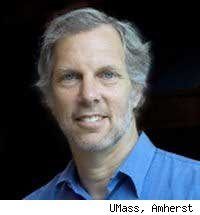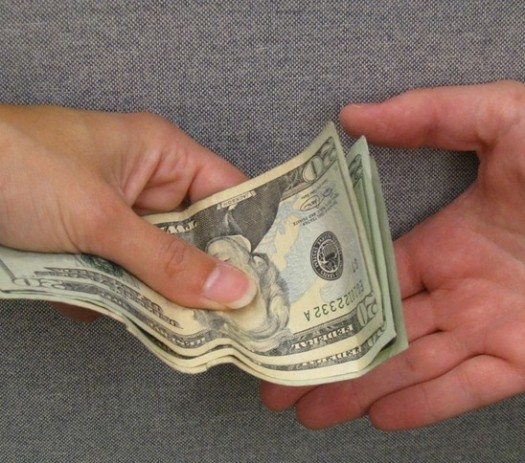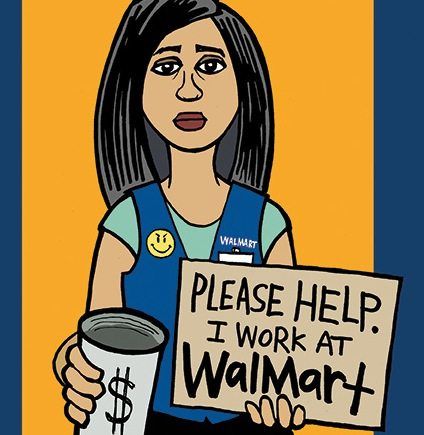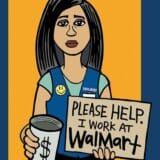

Few American economists want anything to do with social movements. Then there’s Robert Pollin, who has embraced his role as a progressive with a prolific output of books, studies and articles that make the economic case for greater equality.
Pollin, who will be honored at the L.A. Alliance for a New Economy’s (LAANE) City of Justice Awards Dinner next month, rose to prominence in the late 1990s as the most ardent academic defender of living wage laws. In recent years he has advanced the case for a new green economy based on good jobs and environmentally sensible policies.
Pollin, a professor of economics at the University of Massachusetts – Amherst and co-director of the Political Economy Research Institute, may be left of center but he is no business-bashing liberal. To the contrary, he learned from his father – the late Abe Pollin,
» Read more about: Progressive Economist Robert Pollin Gets Down to Business »


Strippers in California were handed a major victory earlier this month by the same judge who ruled “Don’t Ask, Don’t Tell” unconstitutional. The case ruled that dancers were wrongfully classified as independent contractors, and awarded $13 million in back pay and fees to strippers at the massive Spearmint Rhino Chain.
The settlement does away with “house fees” that require dancers to pay a set fee to the club for each shift at California locations, and also requires the chain to reclassify workers [to] employee status within six months. Dancers were previously considered “independent contractors” but subject to strict policies that belied this status.
The Ventura County Star reports on the basis of the lawsuit:
Two women who danced at the Spearmint Rhino in Oxnard launched the suit: Christeen Rivera and Tracy Dawn Trauth. They claimed they were wrongly treated as independent contractors rather than employees entitled to benefits.
» Read more about: Judge: Strippers Are Not Independent Contractors »


“If you’re not a liberal at 20 you have no heart. If you’re not a conservative at 40 you have no brain.” Winston Churchill is believed to have once said that and there are various forms of this sentence that get repeated over and over. Perhaps it’s because deep down a lot of people believe it. Supposedly something happens right around the time progressives turn 30, during which time they take serious account of their lives and question what they believe and why they believe it. In some cases, they “burn out” on activism and decide not to pursue a life in social justice. After all, what’s the point? The world has gone crazy and it’s only getting worse, despite our best efforts…Or so the thinking goes.
I’ve never liked the term “burn out.” “Burn out” implies a fire that goes out and won’t return. After all, anyone who has camped knows how difficult it is to get a fire started again after it’s gone out the first time.
» Read more about: For the Long Run: Hitting the Wall and Getting Over It »


As Black Friday approached, I couldn’t help but remember a vivid scene in The Poisonwood Bible by Barbara Kingsolver where an entire Congo village is overrun by a swarm of ants, creating a human stampede, a living wall of death. The only thing that saves one of the missionary’s daughters are two words of advice that would serve any Walmart shopper well – “elbows out.”
This year, Walmart’s Black Friday customers had to contend with a new challenge: striking workers and their community supporters, who staged actions at stores across the country. Judging by the breadth and intensity of the protests, Walmart diehards had better get used to facing picket lines, and not just on the busiest shopping day of the year.
The origins of the “Black Friday” label are contentious, with commercial interests arguing that it lies in the accounting term of being profitable,


 As anybody with a TV, radio or newspaper subscription can affirm, the big story coming out of the 2012 election is the long feared/eagerly awaited arrival of the Latino Vote as a national political force capable of deciding a presidential contest. Latinos accounted for a record 10 percent of the electorate this year, and something north of 70 percent of them cast their ballots for Obama. Meanwhile, fewer Latinos than ever before voted for the Republican candidate. With the Latino segment of the electorate poised to continue expanding for many election cycles to come, leaders of both parties are tripping over each other to position themselves on immigration reform, and even in blood red states like Texas, GOP strategists are warning of imminent doom for their party if Republicans fail to break their cycle of addiction to racism, xenophobia and pandering to border-guarding lunatics.
As anybody with a TV, radio or newspaper subscription can affirm, the big story coming out of the 2012 election is the long feared/eagerly awaited arrival of the Latino Vote as a national political force capable of deciding a presidential contest. Latinos accounted for a record 10 percent of the electorate this year, and something north of 70 percent of them cast their ballots for Obama. Meanwhile, fewer Latinos than ever before voted for the Republican candidate. With the Latino segment of the electorate poised to continue expanding for many election cycles to come, leaders of both parties are tripping over each other to position themselves on immigration reform, and even in blood red states like Texas, GOP strategists are warning of imminent doom for their party if Republicans fail to break their cycle of addiction to racism, xenophobia and pandering to border-guarding lunatics.
» Read more about: The "Other" America: Voters Are Getting All Mixed Up »


The very next day after the election, congressional leaders held dueling press conferences in Washington to start the stampede to the fiscal cliff. But December 31 is not a cliff; it’s a slope. Actually, the better metaphor is a showdown between two different visions for the country – a showdown that will not only take place over the next four months, but will dominate debate about the economy for the next four years.
It is true that if Congress allows the tax hikes and spending cuts to be fully implemented, the economy will go into a tailspin, with four million people forced out of their jobs. But that won’t happen on January 1. The impact of both tax hikes and spending cuts take time to accumulate. If Congress acts on taxes early in the year, it can make lower tax rates retroactive to the beginning of the year. Between federal contracts already in place and the time it takes to implement program cuts,
» Read more about: Fiscal Cliffhanger: A Longer View of the Tax Showdown »


 Tens of millions of Americans earn under $25,000 a year, and real wages in many of their lines of work have been stagnant for the past 40 years. California entrepreneur and magazine publisher Ron Unz has a suggestion for how to help them: “Perhaps the most effective means of raising their wages is simply to raise their wages.”
Tens of millions of Americans earn under $25,000 a year, and real wages in many of their lines of work have been stagnant for the past 40 years. California entrepreneur and magazine publisher Ron Unz has a suggestion for how to help them: “Perhaps the most effective means of raising their wages is simply to raise their wages.”
Specifically, Unz, in a paper for the New America Foundation, proposes raising the federal minimum wage to $12 an hour. This would, he concedes, raise prices of most things for all Americans and drive some enterprises out of business, but Unz argues that neither of these drawbacks would be terribly severe.
The cost rises would be minimal, and the sectors most threatened—ones that are magnets for illegal employment arrangements between undocumented workers and low-paying owners—impose external costs on society that outweigh their benefits to begin with. “Sweatshops and similar industries,” Unz writes,


For a list of today’s Walmart protest actions, see our Guide to Black Friday Strikes.


This past June, I walked across the stage in front of thousands of students and family members to receive my bachelor’s degree from UCLA. There was a sea of black robes behind and in front of me, and as I set my feet on the stage and saw the crowd, I felt a rush of excitement. With the diploma in my hand, I felt the weightlessness of unlimited opportunity. Yet I knew that I didn’t get here alone. Two generations before me struggled to give me this chance.
Sitting in the living room at home in Santa Ana, California, my grandfather rocks back and forth as he tells me about his life as a Mexican bracero. Braceros were contract seasonal agricultural laborers who were part of a program between Mexico and the United States that lasted from 1944 to 1962 to help meet the U.S. needs for manual labor. My grandfather would wake up early to go down to the fields.
» Read more about: Three Generations: From Fields to Construction to UCLA »